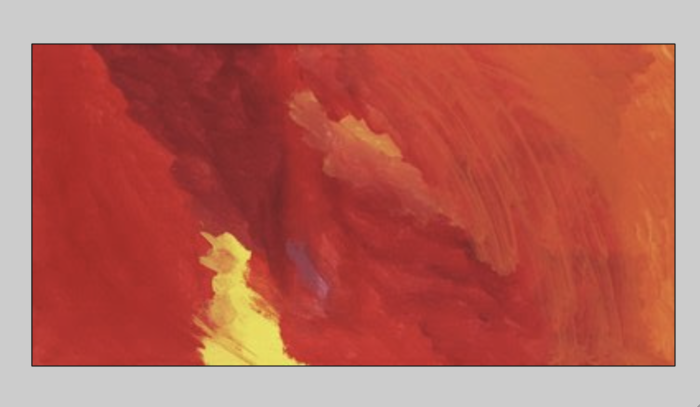
Psych Drama Company Founder Wendy Lippe on her company’s two ambitious new audio productions
Wendy Lippe climbs over hurdles with the same grace and enthusiasm that she has stepping onto theatrical stages.
When the founder and producing artistic director of the Brookline-based Psych Drama Company saw a missed opportunity in how much lovers of theater could learn about not only shows but themselves after the curtain drops, she flipped the format and started a philanthropic-minded troupe that’s celebrating its decade anniversary this year. So it’s fitting that while some stage companies went dark in 2020, Lippe, a practicing clinical psychologist, found a way to keep the box office open through the pandemic, virtually and with significant vision.
“We wanted to do something really big and it was in the middle of COVID,” Lippe said in a recent interview. “We were aware of a lot of artists and painters being underemployed and unemployed, and we wanted to do an interdisciplinary program and have collaborators come together across platforms.”
In seeking a silver lining for her company, for their 2021 outings Lippe recruited partners including ArtLifting, a “social enterprise that champions artists impacted by homelessness or disabilities through the sale and celebration of their artwork,” and Zarko Dragojevic, an accomplished composer from the Marin Držić Theater in Dubrovnik, Croatia. The Psych Drama Company’s core mission is to “unite creative artists across the world in profit-sharing collaborations,” and their current (virtual) marquee speaks to that end and then some.
We chatted with the former Harvard Medical School faculty member about their online audio dramas, Macbeth and Cat on a Hot Tin Roof, both of which have streaming dates via onthestage.com through late September and “will allow actors, directors, composers, sound designers and fine artists, specifically painters—all of whom have been unemployed or underemployed during the pandemic—to share in the profits generated.”
What came before this? How did you build up this company and program?
I have been a theater person since I was little and went to a high school for performing arts and went to a BFA program at Syracuse University. I thought that was going to be my life and then I changed course and became a clinical psychologist. But I never stopped performing. When it’s in your blood, you can’t stop. Stage was my thing, always. Even through graduate school and everything, I kept performing. And then when I was established with my postdoc, I still never stopped performing.
In 2010, I was at a conference in Sicily on Greek tragedy and psychoanalysis … held in this huge amphitheater. … We had these conversations that were fantastic—about artistic direction, and psychoanalysis. But none of the creative people [from a performance they watched together] were there. We were talking about the productions without the creative team. And as someone who deeply identified with both groups, I felt we should all be sitting on that stone stage and engaging with each other. And so it clicked. I said, I am going to form a drama company and I am going to integrate creative artists with academics and clinical psychologists and we are going to delve deeper into the psyche of the characters. It’s going to be integrated, it’s going to be interdisciplinary.

How do most theater companies address these issues, if at all?
They’ll have a psychoanalyst come and discuss the production after [the show’s run is over]. With ours, every single performance has a clinical psychologist to lead a discussion afterward, and some have also worked with our actors and creative team during the rehearsal process. At our last production, we had people from Harvard Medical School and social workers leading a discussion after every performance. The mission was to help people think more deeply about relationships and their lives.
What kind of plays lend themselves well to this approach?
We love Edward Albee, Tennessee Williams—we do hardcore stuff, serious dramas. I think the greatest writers of all time speak to elements of human nature that we can all relate to forever. In Hamlet, in Macbeth, we can watch them again and again.
Tell me a little bit more about the pivot to audio dramas during the pandemic.
I can’t tell you how much porn addiction I treat—fantasy and imagination have gone out the window. [For last year’s production], I said, No, we’re not doing Zoom. There’s something that is deadening about it. I said we’ll go back to something older.
We got rave reviews for a radio drama … that aired in December 2020. What I loved about it as a clinical psychologist was you could lay back and just listen and fantasize about the imagery and have this experience where you’re not bombarded by too much stimulation.
And now you’re doing two plays at once, Cat on a Hot Tin Roof and Macbeth. And you’re doing them as audio dramas, complete with original music and artwork. Is this the new direction that your company is moving in?
I’m always going to do live theater—I’m either going to die on stage, or talking to a patient. But I’ve fallen in love with this other medium.
With Macbeth, you are going to have a 3-D audio experience. It’s surround-sound. This is not your standard stuff—you have to listen with headphones. It’s like the story is brought to life. It’s immersive. So the visuals are your imagination, but the audio is so rich.
I adapted it, it’s a 90-minute adaptation I created only using Shakespeare’s language. It’s fully reimagined. I tried to capture just a little bit more about Macbeth and Lady Macbeth’s inner-turmoil. I wanted to flesh them out in a three-dimensional way. If you look at them separately, they’re not fully fleshed out humans in the way Hamlet is.
How did the musical collaboration with Zarko Dragojevic come about?
This was the best time to collaborate, and I had met him and we recognized that we shared some artistic sensibilities. I said that I wanted to do another adaptation of a Shakespearean drama and that I wanted it to have an original score. We stayed in contact for a while and during the pandemic. He’s created tons of original scores for shows in Europe.
It’s amazing, all of the characters have their own theme music. And he is in Croatia, so he’s coming to rehearsal at 3am.
How exactly does the format work for the audience?
You buy the ticket and you have a 24-hour period to listen to it.
These are not readings. We had Zoom rehearsals for three to four months, and then we had rehearsals in person, rented professional recording equipment, and we got together after a week of meeting in person and recorded it with everybody in the same room. So these are fully rehearsed productions and when you hear them you will hear the quality of the work.
And I take it you can reach people you never dreamed of reaching in your usual format?
We can stream in multiple zones across the world.
I found out about these shows as a fan of Nick Morse’s art. He’s not an actor, how did he get involved?
I was on his site scrolling through paintings and reading about how he doesn’t speak, but his paintings speak. And it said that Nick doesn’t mind the orientation that you hang his paintings on. And I saw one and it just grabbed me. It looked like an abstract figure of Macbeth grounded looking up into the sky, and then a figure of either one of the witches or the dead souls he killed floating to the sky, and he’s on the ground and the fires of hell are all around him.
Nick’s self-esteem was suffering during the pandemic, and his father and agent [Nick works with ArtLifting] said it was uplifting to him [to get involved]. [In addition to the poster art], we have a bunch of his paintings, and while people are listening to the audio drama, they will also be able to look at Nick’s art during the Macbeth intermission. For Cat on a Hot Tin Roof, we have paintings from three artists that capture the play’s motifs of sexuality and mortality.
What else should people know?
The money from the ticket sales go directly into the pockets of artists. The pandemic continues and they need it.
thepsychdramacompany.com
A Queens, NY native who came to New England in 2004 to earn his MA in journalism at Boston University, Chris Faraone is the editor and co-publisher of DigBoston and a co-founder of the Boston Institute for Nonprofit Journalism. He has published several books including 99 Nights with the 99 Percent, and has written liner notes for hip-hop gods including Cypress Hill, Pete Rock, Nas, and various members of the Wu-Tang Clan.

